We’ve come to a fork in the road here at X Blogger! I’ve had to make a tough decision about how to proceed. Those of you who are diehard X Bomber fans probably understand already, but here’s a short explanation of what’s to come…

Prior to it’s English incarnation, Star Fleet was known as X Bomber in it’s native Japan. The original Japanese series has two additional episodes– an unbroadcast pilot and a flashback episode. I intend to cover all of this in my usual detail on X Blogger in due course.
Although the X Bomber pilot has been helpfully uploaded to YouTube for those who haven’t seen it before, I decided to do a quick remaster and add English subtitles. Please do like, comment, and subscribe for more videos like this!
When I started this project, my goal was to focus on the English Star Fleet first and foremost. I can only write in English and it was the version I knew the most about. Plus, it seemed like what all of you would be most interested in reading.
I’ve always intended to come back and write about the other versions of Star Fleet, especially the Japanese original. Even though these series are essentially the same, there are so many key differences that make watching each alternate cut a voyage of discovery. Thus, I eschewed production order and covering the untranslated pilot until the end of my coverage of the English language episodes. But what of episode 18?
Never seen the lost episode? Watch it on my YouTube channel and support my work at the same time!
If you grab your Star Fleet DVDs off the shelf (as released by Fabulous Films in 2009 to much rejoicing from fans all over the world) you will see episode 18 listed as Destroy the Prison Planet!1 which follows directly on from the last episode I reviewed, Asleep in the Ice Prison AKA episode 17.
However, a quick Google search will reveal that episode 18 in the Japanese series (and apparently no other languages) is called Bloody Mary’s Promotion OR Commander Makara’s Promotion.
English-speaking fans sometimes think of this as a lost episode of Star Fleet, but the narrative goes that it was dropped from the run on purpose. Why? This is another flashback episode.
For those of you keeping track at home, this is the third such episode in the series, the first two being Episode 9: Target: the Captain and Episode 13: Battle To The Death: X Bomber Vs. the Imperial Alliance.
These episodes were devised as a means of catching the audience up on the story so far and provided a welcome opportunity for the production team to fill up airtime with footage that was already in the can.
Since Star Fleet isn’t short of flashback sequences within the regular episodes themselves, someone ultimately figured that this third go-round was unnecessary. But was that a decision made by the Japanese exporter or did individual territories make up their own minds on the subject?
Louis Elman, director of the English dub production and X Blogger subscriber, has no recollection of this third flashback. “I don’t think this episode was ever given to us,” he said in an email, “If you could raise the funds we could dub it now!” Does anyone want to start a Kickstarter campaign?
This episode certainly isn’t needed to perform it’s original function– Star Fleet works just as well as a 24 episode series as a 25 episode series.
However, I will take a quick look at this episode now since it gives a bit of insight into the character of the Imperial Alliance. Consider this a preview of what to expect if/when I review the Japanese originals in their entirety!
Like Star Fleet, X Bomber opens with the main titles flying in from the stars. But outer space in this sequence is even more stylized. The heavens are so blue there’s hardly any black at all and the stars twinkle with a romantic flourish as the name of the show sweeps in with a sound effect.
I’ve always felt that X Bomber is a better title than the more generic Star Fleet. However, neither mentions F-01 which is the central element of the narrative.

After the title card, the Japanese credits begin with the opening lens flare shots from the episode one. Paul Bliss’ familiar cues were a few years away from being composed. The original theme tune would in some ways prefigure Star Fleet’s future entanglement with rock and roll fame.
Bow Wow (not to be confused with the rapper or the new wave pop group Bow Wow Wow) was a rock band formed in 1975, allegedly assembled by a music industry executive in the same way as groups like the Monkees. This group sported a hard rock sound and lots of talent. By 1980, when they would write and record their contributions to the soundtrack for X Bomber, they had already opened for international bands like Kiss and Aerosmith during their Japanese tours.
It isn’t clear to me how Bow Wow came to be involved with the X Bomber project. I managed to get a few words with songwriter/guitarist/singer Kyoji Yamamoto. Despite the language barrier, he was able to inform me that he never met Go Nagai, but that he was a big fan of Thunderbirds. Undoubtedly Nagai’s status as a successful manga creator and the clear influence of Thunderbirds would have been contributing factors to getting the band signed. Hoepfully I’ll have the opportunity to do a deeper dive into Bow Wow in the future. For now, here’s a video from Kyoji’s social media page showing him performing the X Bomber theme song he wrote at a karaoke night around 2023.
For reasons I’m not totally sure about, most anime (popular style of Japanese animation) also have a manga (pop style of Japanese comics) version devised nearly simultaneously. In some cases, the shows are adaptations of popular manga as is the case with Astro Boy and Speed Racer. However, X Bomber seems to follow the mold of a typical series of the 70s/80s, and used comics as a means of merchandising the television production. Although credited to Go Nagai, some readers claim that the story diverges from the plot in significant ways. I hope to do a deep dive into comics at some point (probably starting in English with the Look-In strip illustrated by the legendary Mike Noble) but you can read about the manga and see some scans over here.
After kicking things off with the sun emerging from behind Earth, we get a look at Moonbase, appearing exactly as it does in the series.
The X Project is still getting ready for takeoff in these credits– a nice reminder that not long ago this was a brand new and untested machine. By episode 18, it feels like a battle hardened veteran.

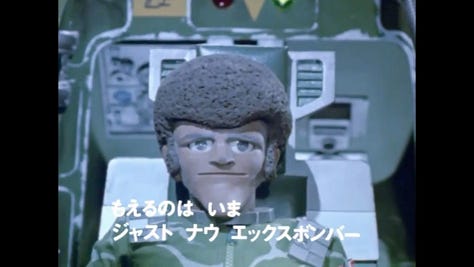
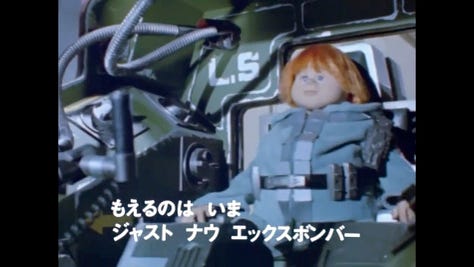
It doesn’t feel like there’s any particular sequence here. From X Bomber being prepared on Moonbase, we cut to Shiro, Hercules, and Lee heading to their Dai-X fighters…
…and then to this very familiar panorama of X Bomber travelling through space. Will we get a shot of the heroic Dai-X? The giant robot that was the focus of the vast majority of X Bomber merchandise? Perhaps the same shot of arms spread wide that closes the English opening titles?
Nope. The theme song ends with an unsexy shot of X Bomber’s fuselage. Don’t get me wrong, I could look at X Bomber’s rear end all day but I’m feeling a little Dai-X deprived!
There. I fixed it with this image from an online auction of one of my favourite pieces of Star Fleet X Bomber merch ever– Dai-X on a tricycle holding a balloon. Why? I don’t know, because kids like tricycles, balloons, and giant robots so maybe put them all together? Why not, right? It’s a classic example of merch gone haywire almost on par with the C-3PO tape dispenser.
In case you haven’t detected it, I’m not exactly bowled over by the X Bomber opening credits. There are no shots of Dr. Benn, PPA, the villains, or even Lamia. Where the English version packs a punch with fast cuts of all the elements of the show, this version seems to favor leisurely panoramas, which are very nice, but do not make me want to “get fired up” as the theme song encourages me too.
There’s also the unfavorable comparison between Bow Wow’s theme and Paul Bliss’ track. Personally, I vastly prefer the Paul Bliss tune as it’s more inline with my Western sensibilities and it’s also the version I heard first.2 But the Bow Wow version has a great beat and a more hard rock sound which prefigures what Brian May would ultimately do. I mean, puppets in outer space plus a little rock and roll… it’s hard not to love it.
A grave narrator catches us up on the story so far. Incidentally, the Imperial Alliance are called the Gelma Empire here, which is sometimes translated as the “Germanic Empire.” Bit odd since Germany and Japan were on the same side in WWII and to my American eyes, there’s lots more taken from Japanese culture in the baddies than Germanic,3 but it’s all a matter of perspective.
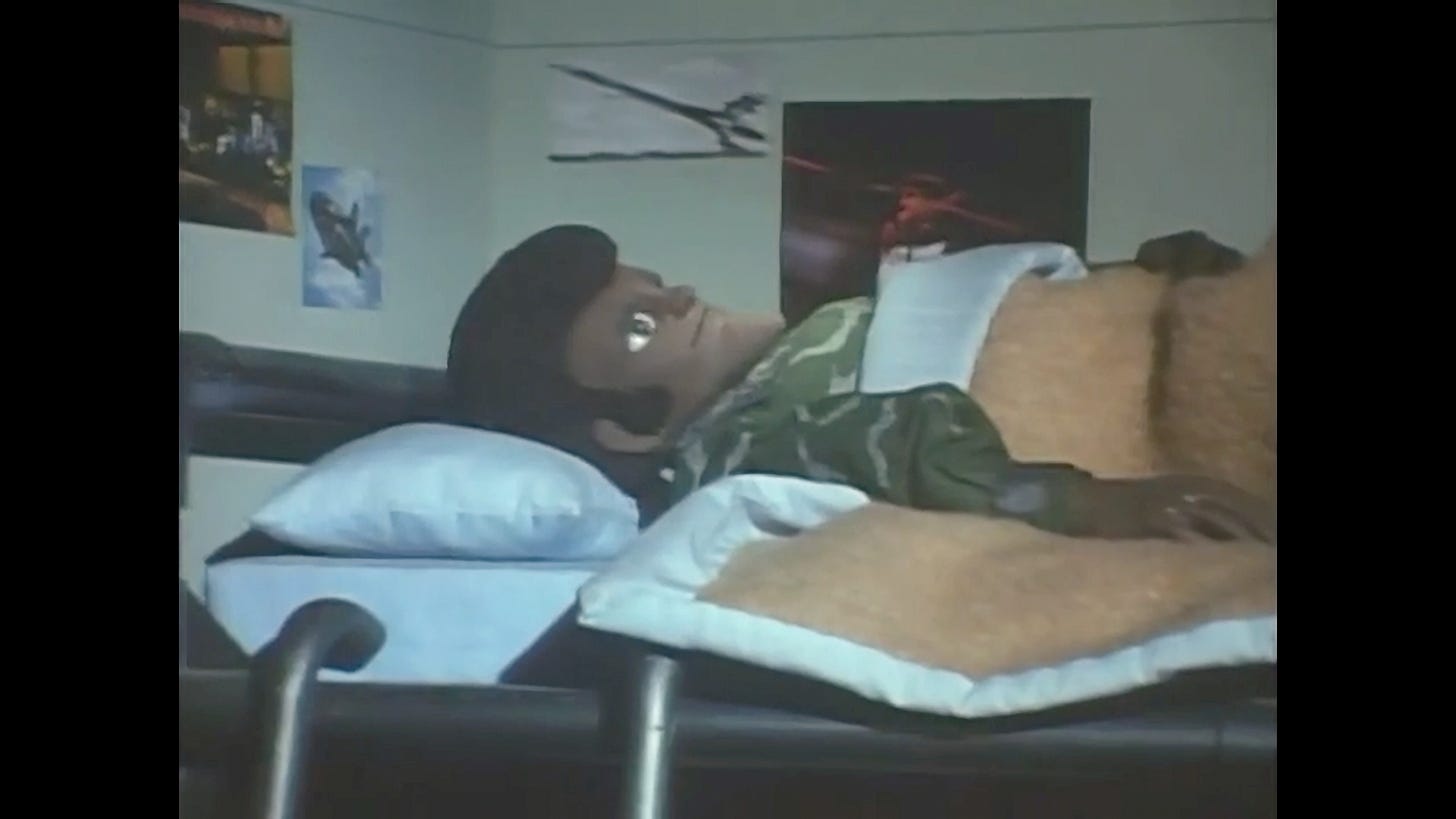
While Lamia is imprisoned in an underground electromagnetic chamber, X Bomber has lost track of the Gelma mothership. Feeling a bit hopeless, our heroes have decided to put whatever hope they have left in something called a “spectrum probe.” Doubtless Colonel White would approve. Then they go to bed.
One thing to appreciate about these flashbacks is that they give us a few moments to get a peek into the personal lives of our characters. Hercules loves rock and roll too, and this is the best episode for getting a glimpse of the Thunderbirds craft pinned up by his bed.
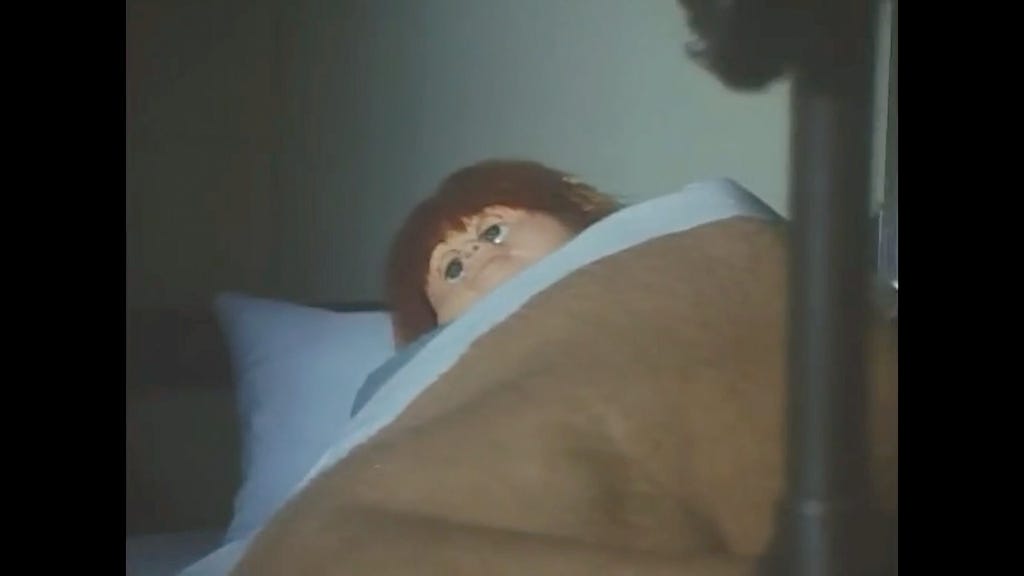
All the boys are in bed, but the lights are still on and nobody is sleeping. Surely one of them should be on duty? Besides, with all the worrying about Lamia, nobody is getting any sleep anyway.
It’s Hercules who breaks the silence. Since they’ve lost contact with Captain Halley, he reckons that means Halley has lost contact with Lamia too. Shiro agrees, but Lee just thinks speculating will cause more anxiety.

Kirara is sleeping peacefully in Lamia’s room now– the flower a reminder of her absence.
Dr. Benn is indulging in the favourite past time of X Bomber characters, thinking as hard as he can into deep space in the hope that Lamia can read his thoughts.
He hopes the probe will be successful, but he is forced to count on her “strong life force.” “Be safe,” he urges her as he takes a long drag on his calabash. Not very encouraging but I do think these kinds of scenes play out better in the original language in some ways. Why?
A) There’s no distractions from the cinesound library sound effects, which are very familiar from turning up in Gerry Anderson shows, James Bond movies, and lots more.
B) The puppet lip sync tends to be better since they’re not being dubbed (irrelevant in this scene as Benn doesn’t speak aloud)
C) It’s more atmospheric and a bit darker. There is something about lacking the context of being a native speaker and being forced to read subtitles that adds distance and a pinch of profundity to dialogue or performance that could otherwise seem silly. I think it’s why “foreign films” have such a snobby reputation.
In a much darker part of the galaxy, Makara and Orion are on course for a victory lap.
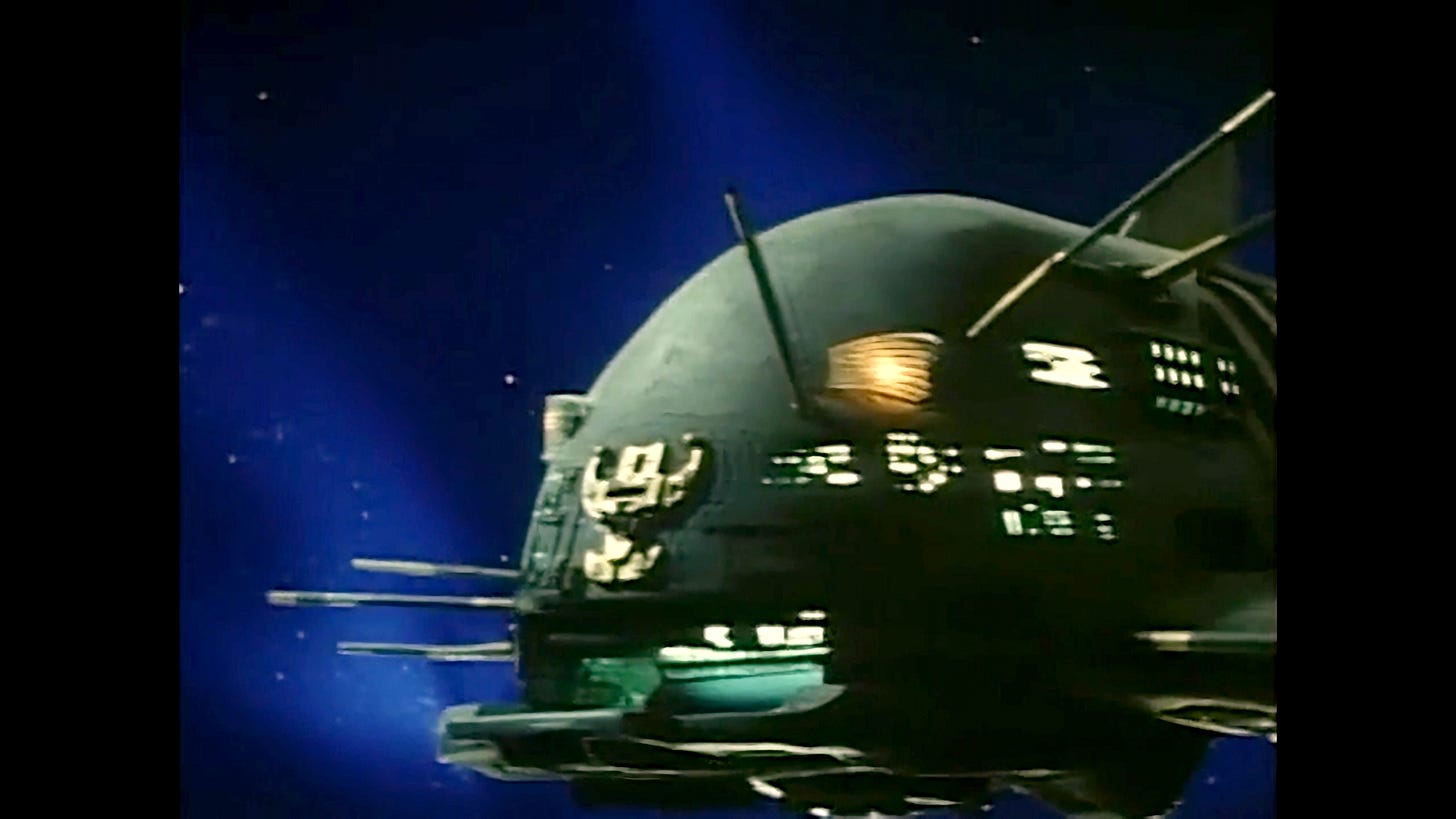
The Alliance gang are almost at Gelma– the Imperial planet/fortress we last saw when Makara and Orion were on trial for their lives. Now, they are returning triumphant.

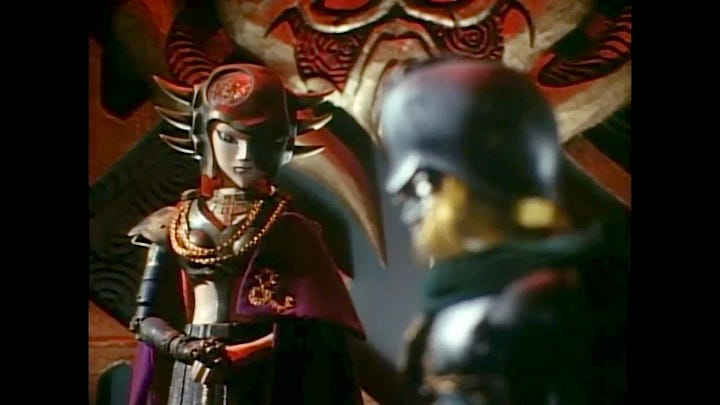
If you think these characters are called Makara and Orion, get ready for a shock. In Japanese, she’s Bloody Mary and he’s Kozlo. Huh? Get ready for a few fascinating rabbit holes.
Bloody Mary, in Japan as well as the rest of the world, is a popular beverage named after Mary I of England. As far as I can tell, they just appropriated the English name (wasei-eigo again) because it sounded good without much consideration given to history or tomato juice. Makara, although it sounds as if it could be of Japanese origin, is actually a Sanskrit word referring to a Hindu mythological water creature. Was it chosen by the English or supplied with the literally translated script? The only clue is that in French, she has another TOTALLY unrelated name– Commandant Gorgona4– so without access to production paperwork I can’t really say.
What about our favourite snivelling henchman? Once again, I don’t have much to go off of, but I believe Kozlo (pronounced here as Koh-Zoo-Roh) to be named after Colonel Yuri N. Kozlov– a believed Soviet spy. The Miyanaga Incident– a case where a Japanese army intelligence officer named Miyanaga was caught funneling secrets to Kozlov– was headline news in Japan in 1980.5 Kozlov fled to the Soviet Union, abandoning Miyanaga, so he was undoubtedly considered an especially slimy character by the public and thus a good template for Mary’s henchman. It’s a unique choice for a show where characters tend to be given simplistic names and relatively timeless names.
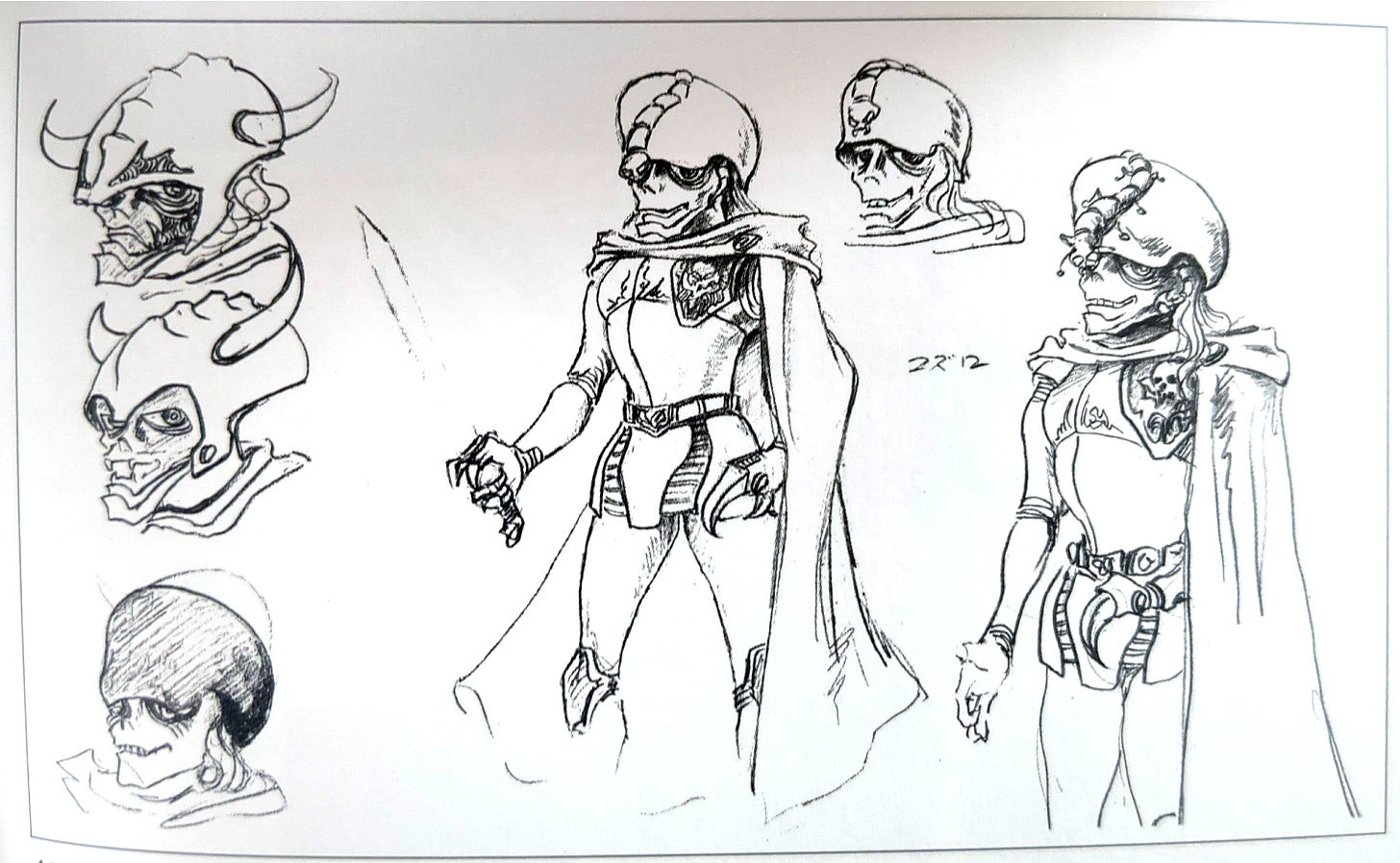
Orion is both a hunter and a constellation in Greek myth and something of a contradictory figure. In some tales, he is a sleazy rapist but in others he is a completely different personality. Could Orion be taken from the Japanese original? I think in this case Orion was likely named by the English crew who wouldn’t necessarily have known about Kozlov and Miyanaga. There is yet another rabbit hole– the weird pronunciation of Orion’s name as opposed to the traditional pronunciation of Orion the constellation/mythological hunter– but think we should come back to the surface for air now!

A triumphant march plays as Makara returns like Napoleon fresh from Elba. It’s always a treat to see the Imperial planetoid and to know that the Imperial Alliance is more than just one ship and a face on a screen.

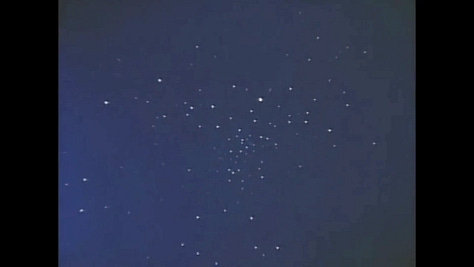


Far across the stars, Halley is also trying to communicate with Lamia, urging her to have faith in her power.
Aboard X Bomber, Hercules swears like a sailor, Lee feels like they’re wasting time, and Shiro is regretting taking Lamia to the Skull in the first place, which leads us into our first flashback. Of the three, I’d say Lee is the most on the money because they are all still laying around in bed.
I don’t have much to say about this flashback that I didn’t cover in earlier articles, so I’ll take this opportunity to let you know that PPA is named PP Adamski in the original. Why? Adamski is a Polish surname adopted as a moniker by a DJ in the 90s, but presumably, PP Adamski is named after American George Adamski who was famous for his alleged encounter with aliens. George wrote a book or two about the experience and panspermia in general, becoming an extremely popular figure in Japan. His popularity kicked off a nationwide interest in Ufology and flying saucers and the iconic spherical design is sometimes referred to by his name. In America, he is often considered a quack and is more or less forgotten.
Dr. Benn is just Dr. Benn except in Arabic where he is Dr. Fahman, a name which means wise.

For some reason, Shiro believes that the events he has just recounted make him seem pathetic. I guess because he gave into Lamia’s wishes?
Hercules actually does have a bit more to feel guilty about, since (as we are about to be reminded) he was suspicious and skeptical of Lamia’s power. However, as I examined thoroughly in my review of episode 15, Hercules doubt is understandable. Lying here rehashing the past isn’t going to help rescue Lamia…
Admittedly, in the Japanese dialogue he does come across a bit more condescending. But he is also more direct– asking her point blank is she is the F-01 that the Gelma are looking for.
Still he shouldn’t have abandoned his post and now he is beating himself up for it. All these space jockeys are going to need some serious therapy.

Lee is disturbed out of any possibility of rest by Hercules’ self-flagellating rants. The taller man makes a half-hearted apology.
This clunky sequence comes to an end with Shiro softly whispering Hercules’ name. Because he feels bad for him? Because he’s realized Hercules, not Lamia, is the one he’s been in love with this whole time? It doesn’t matter because now we are finally heading to the promise of the premise.
That’s right, it’s back to the baddies. Cue villainous, doom-laden, heavy guitar riffs.

The Imperial Master, as we know, is a giant. The scale of this set up is off the chain. Unlike last time, we see the Imperial Master in a more formal, throne room setting. I’m really pleased with how it looks.

He informs his tiny minions that he is bestowing upon them the Gelma Medal of Honor. Other than themselves, only one other has received this prize. I’m guessing the Imperial Master gave it to himself.
Makara/Mary gives thanks via her male-voiced symbiont, something which hasn’t spoken very much considering how much fuss was made over it in the first episode, and Orion/Kozuro babbles about how he’ll never forget this day. Apparently, his symbiont doesn’t talk.
Because he’s so happy that they’ve brought the Gelma Empire nearer to total universal domination, the Emperor is also promoting them. But instead of explaining what their new ranks are, he proposes they all rewind the tape and enjoy a highlight reel of victory. Oh joy.
Good idea, termoid. Wine is just what I’m going to need to get through all these flashback sequences.
It is pretty nifty to see Makara and Orion on the Imperial planet under happier circumstances. Makara accepts her wine with restraint. Even though her success is near total at this point, she is still being cautious and on-guard. Orion, by contrast, is guzzling wine like a fool.
In his best Brian Blessed basso profundo, the Demon King of the Germanium Empire orders his guards to turn on the TV.
As the purple curtains (made from the same material as Makara’s cloak) part, Makara and Orion get to enjoy reliving some of the good old fashioned fun they had back when X Bomber was a serious threat and they hadn’t locked Lamia in a prison of eternal darkness. What a couple of heels.
We cut to this flame, for some reason, before panning over to Orion.
He’s getting the feels. “It’s all thanks to you,” he oozes to Makara. His ingratiating manner seems to indicate a bit of affection as well as the fact that he’s hitting the sauce too hard.
For her part, the conniving Makara encourages him to forget everything and just drink. Not exactly a rejection but not an encouragement either. Makara herself still hasn’t touched the wine and keeps her human eye hidden from camera. A nice bit of courtroom intrigue.
With some really dodgy optical work, we zoom in to the action of episodes 15 and 16. Kozlo narrates with great gusto. He slips up a bit when he points out that damaging X Bomber’s oxygen system was only a lucky pot shot which leads to some snarky banter with Bloody Mary. He overcompensates for the implied criticism and she says his flattery is turning her wine sour. This is much more fun than listening to Shiro and Hercules whining.
The termoids are a lot more menacing in Japanese. The voices are processed with less effects and the delivery is far less goofy. Even the lines themselves are more violent and aggressive. They’re actually kind of scary!
Orion is reveling in the moment. Makara gets into the spirit of things and gives an echoing evil laugh.

Aboard X Bomber, things are getting tense. The “spectrum probe” was obviously run by Captain Magenta because it turned up nothing. The impatient, exhausted, and frustrated lads are beginning to wonder if the baddies went off in a different direction entirely– remember space is very, VERY big.

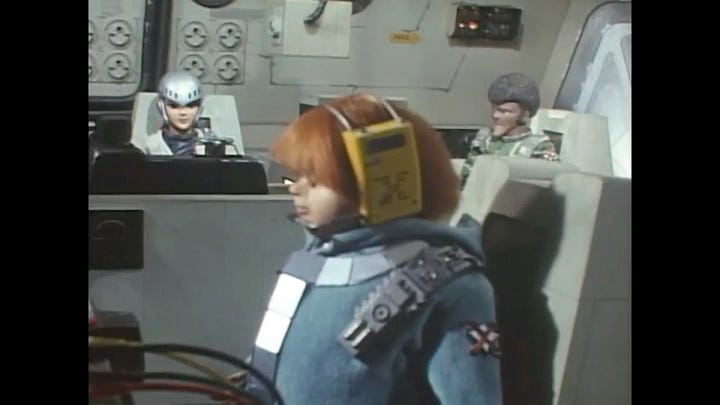
“All we can do is keep searching tenaciously,” Dr. Benn says as the boys start to get snippy. But it’s clear even the fearless leader of the X project is beginning to lose faith.
As the narrator returns to the soundtrack, we can feel the episode winding down. The Gelma are enjoying their success, X Bomber are wallowing in defeat. Guess the show’s over?

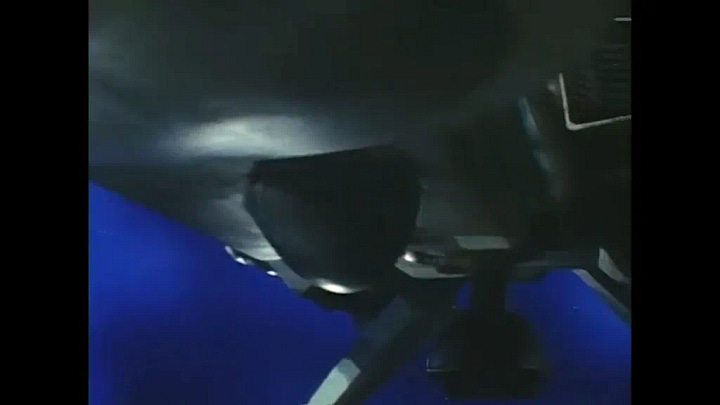
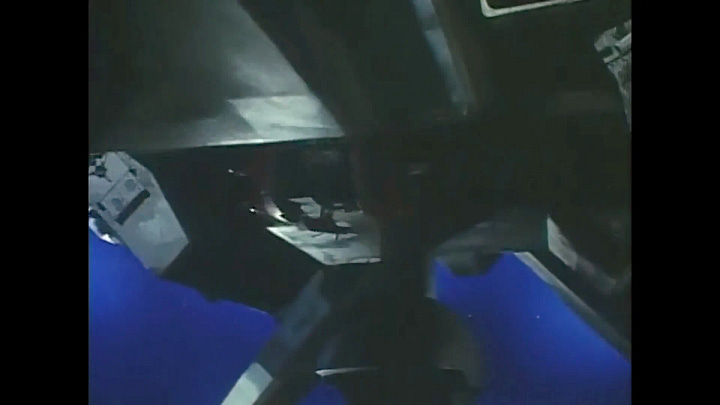
I think I’ll save the pleasure of dissecting the credits and the “next episode” preview for another time. Suffice it to say, I’m underwhelmed. The end titles use a different song from the opening and it is definitely the weaker entry of the two and not a patch on Paul Bliss’ iconic anthem. The imagery is very similar to that used in the English version only without the freeze frames. As for the preview, the narrator fails to ask the intriguing questions that will make us want to tune in.
And that’s the end. Pretty bleak situation without much real hope offered to us. I can see why this episode was dropped from the export list. As I mentioned, some of the sets seem cobbled together. Although I imagined the lost episode would feature a lavish victory banquet like a twisted version of the Last Supper or the Skeksis dinner in The Dark Crystal, what we actually get is a TV dinner sans food; standing room only. The flashbacks mostly cover the most recent events which even the least attentive audience members don’t need recapped. On a positive note, it is always nice to spend some time with the villains. They are truly mustache-twirling in this episode and I love it. The scale of the Imperial Master is impressive, even if his screen isn’t exactly a 72 inch OLED.
You might be thinking that I prefer the English version to the Japanese, and you’d be right. But that’s actually more to do with my own personal nostalgia. If you compare the two shows side by side, you’ll find they’re more or less equally matched. While the Japanese original has weaker music and a bit less dramatic polish, the mise en scene fits more seamlessly with the soundtrack and the mystical, mysterious elements tend to come across better. The English version has much more energy in the vocal performances and music but suffers from a hastily translated script. I love the Japanese version and look forward to writing about it more.
If nothing else, writing this blog post has really highlighted how great it is that we have most of Star Fleet in an upscaled quality thanks to the hard work and dedication of a small handful of fans. You’ve undoubtedly noticed that this edition does not have the same kind of high quality screengrabs that you’ve come to expect from X Blogger and that’s entirely down to the fact that others have put so much time into restoring the series and making it look great. Thank you, my fellow fans!
Next time! Will Lamia be saved from the Imperial prison? Will this writer be able to avoid getting lost in rabbit holes? And will Hercules bless us with a guitar solo? Tune in to find out!
Support your local X Blogger!
Subscribe here, on YouTube, or on social media
BuyMeACoffee, Ko-Fi, and check out my Patreon for my own puppet movie Astral Beacon.
Get some Star Fleet fan art from my Redbubble store
I’ve recently been co-hosting an unofficial Gerry Anderson themed podcast called The Security Hazard Show! Check out this episode about the largely forgotten puppet James Bond spoof Agent Crush.
Although the episodes didn’t feature titles on screen in English, these are approximate translations from the Japanese titles.
Music, it turns out, is one of those things where which version you heard first does matter. Music becomes hardwired into our brains, especially what we hear around the age of 14, which fixes the course of our musical taste for life.
https://psycnet.apa.org/record/2011-08114-006 https://www.nytimes.com/2018/02/10/opinion/sunday/favorite-songs.html
While Hitler held the title of Führer which was effectively the same thing, the Japanese had an emperor and an empire. Neither the Gelma nor the Imperial Alliance seem to have a racial motivation for their belief in the divine right of conquest, whereas extremists in WWII-era Germany and Japan both advocated for a philosophy based on “racial purity.”
The most appropriate name of all– Gorgona refers to the Gorgons who were a trio of sisters each with monstrous supernatural powers in Greek mythology. The most famous? Medusa!
It seems possible that Miyanaga even gave away US military information although this was not proved in his trial. This is a fascinating case that so captured Go Nagai’s attention that he used an iteration of the name again in the early 2000s for his manga Getter Robo Arc.
https://ja.wikipedia.org/wiki/%E5%AE%AE%E6%B0%B8%E3%82%B9%E3%83%91%E3%82%A4%E4%BA%8B%E4%BB%B6
https://getterrobo.fandom.com/wiki/Gozro





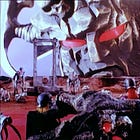
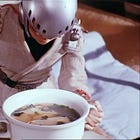











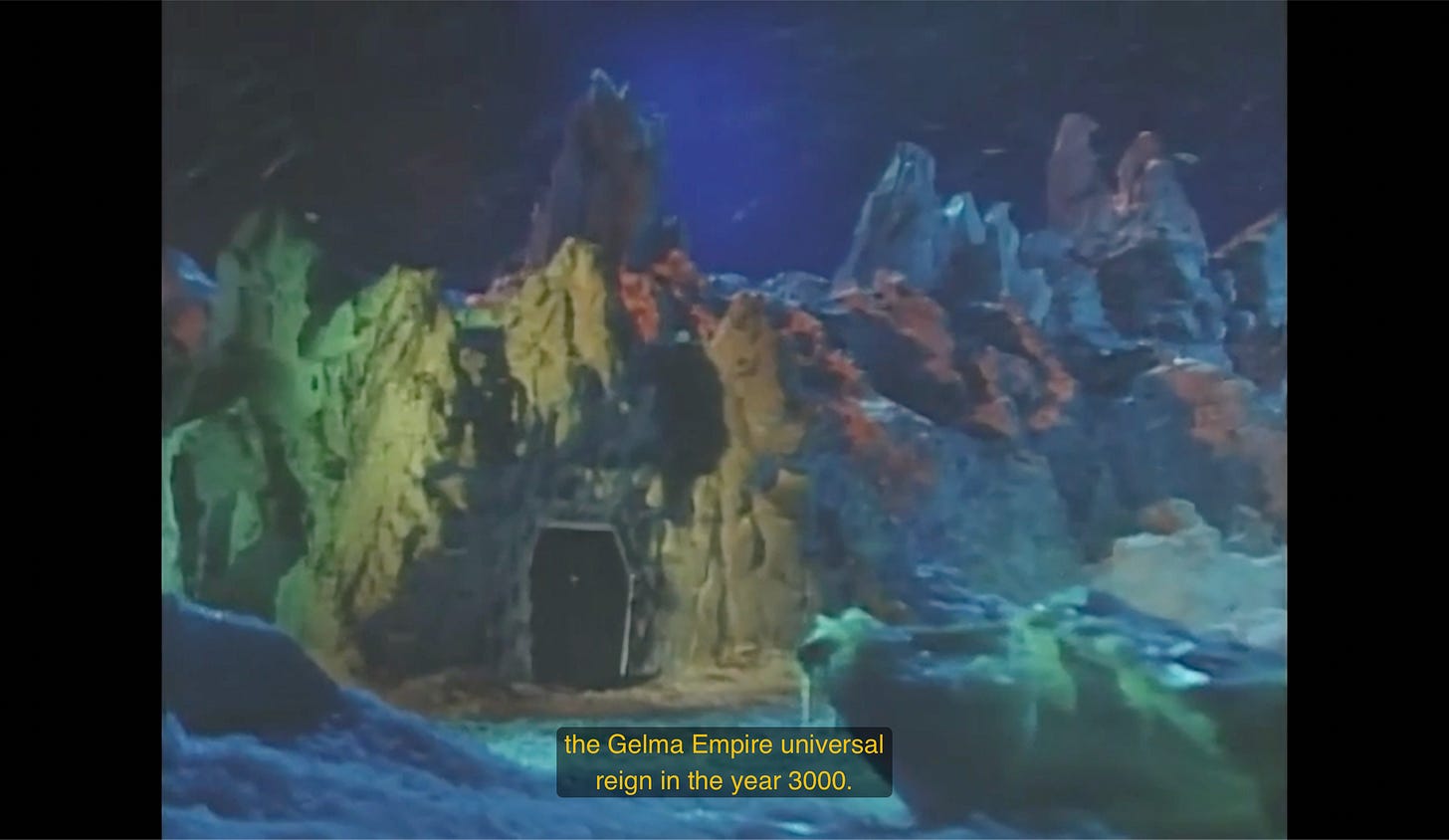








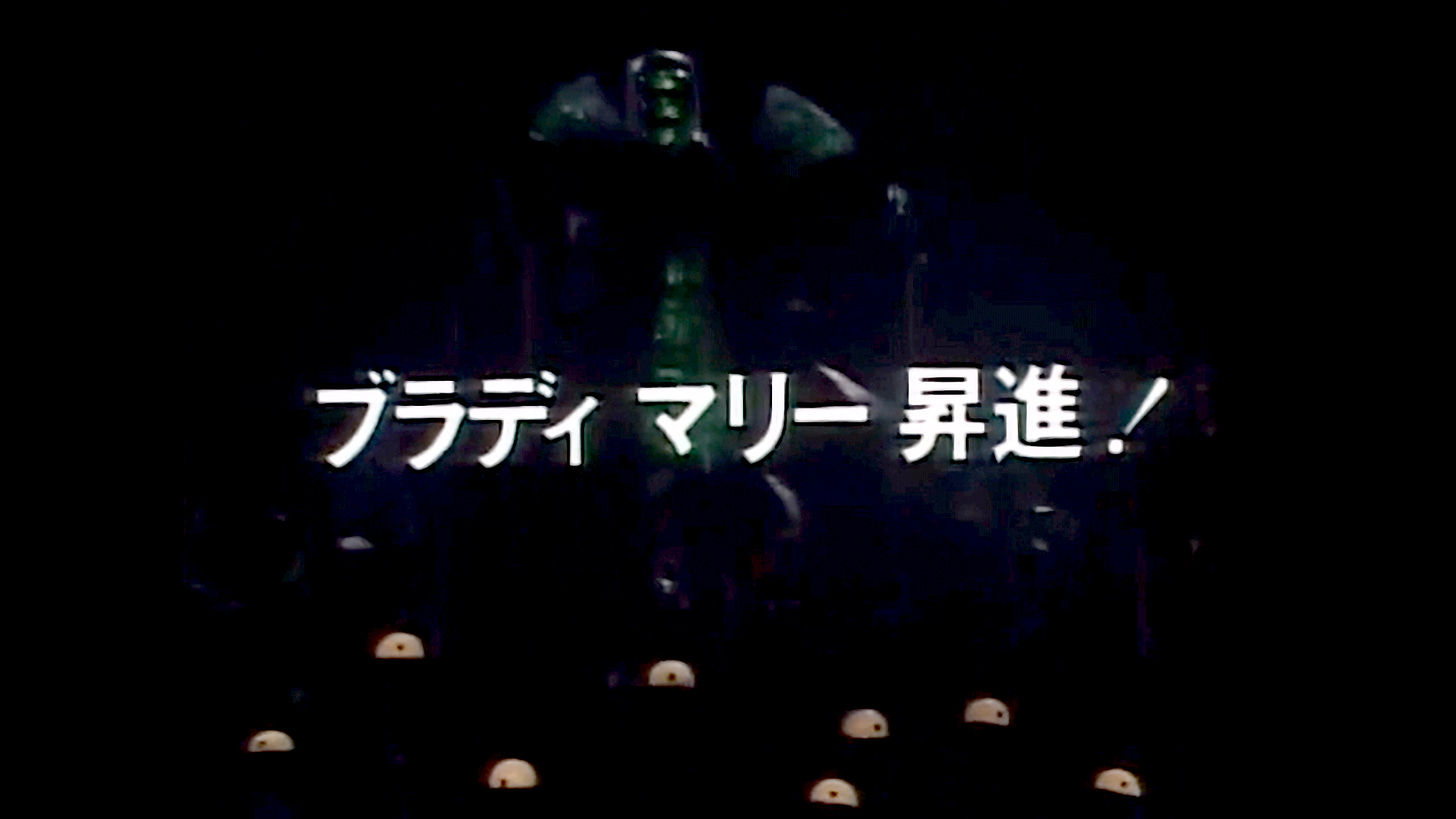




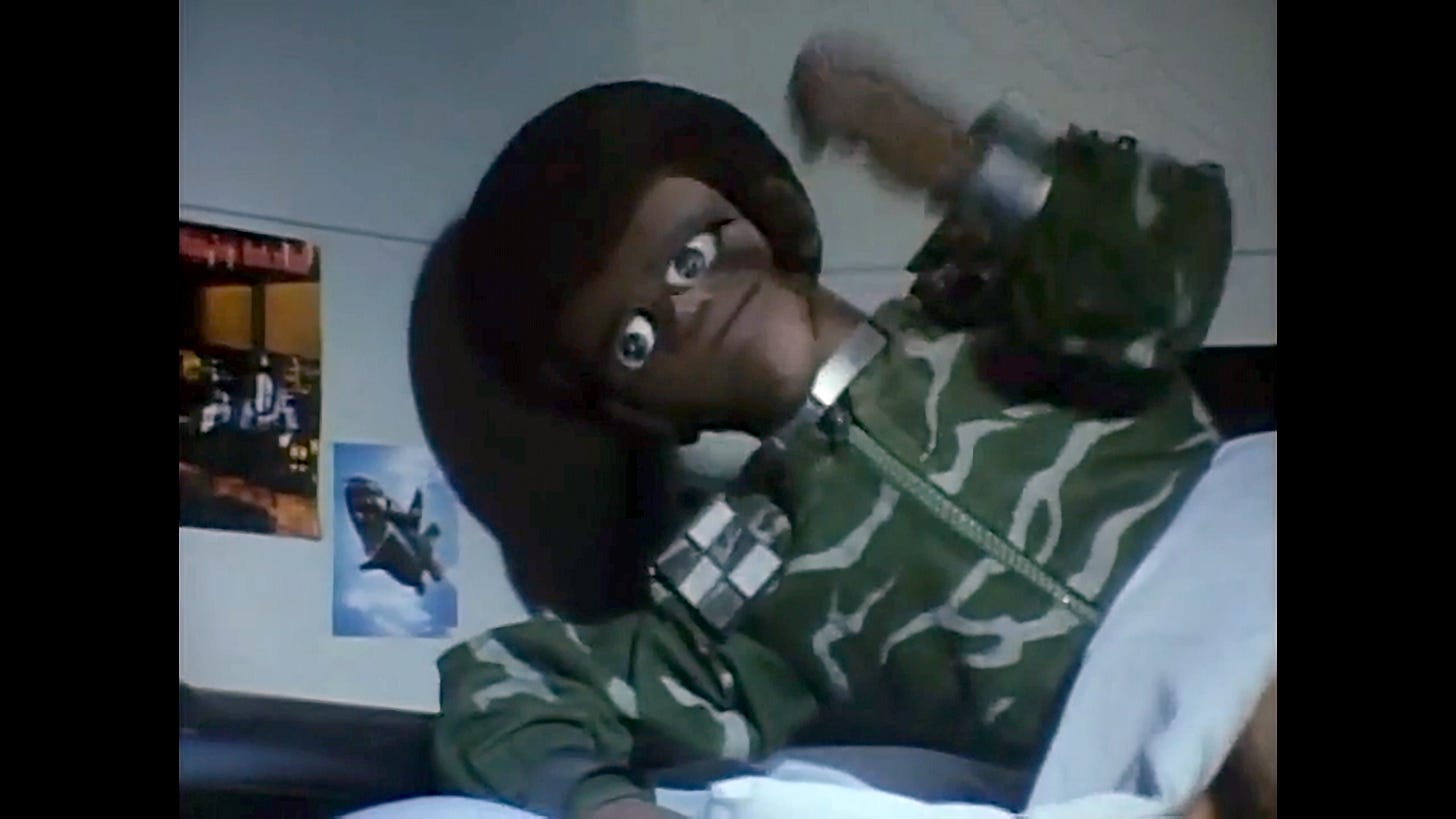












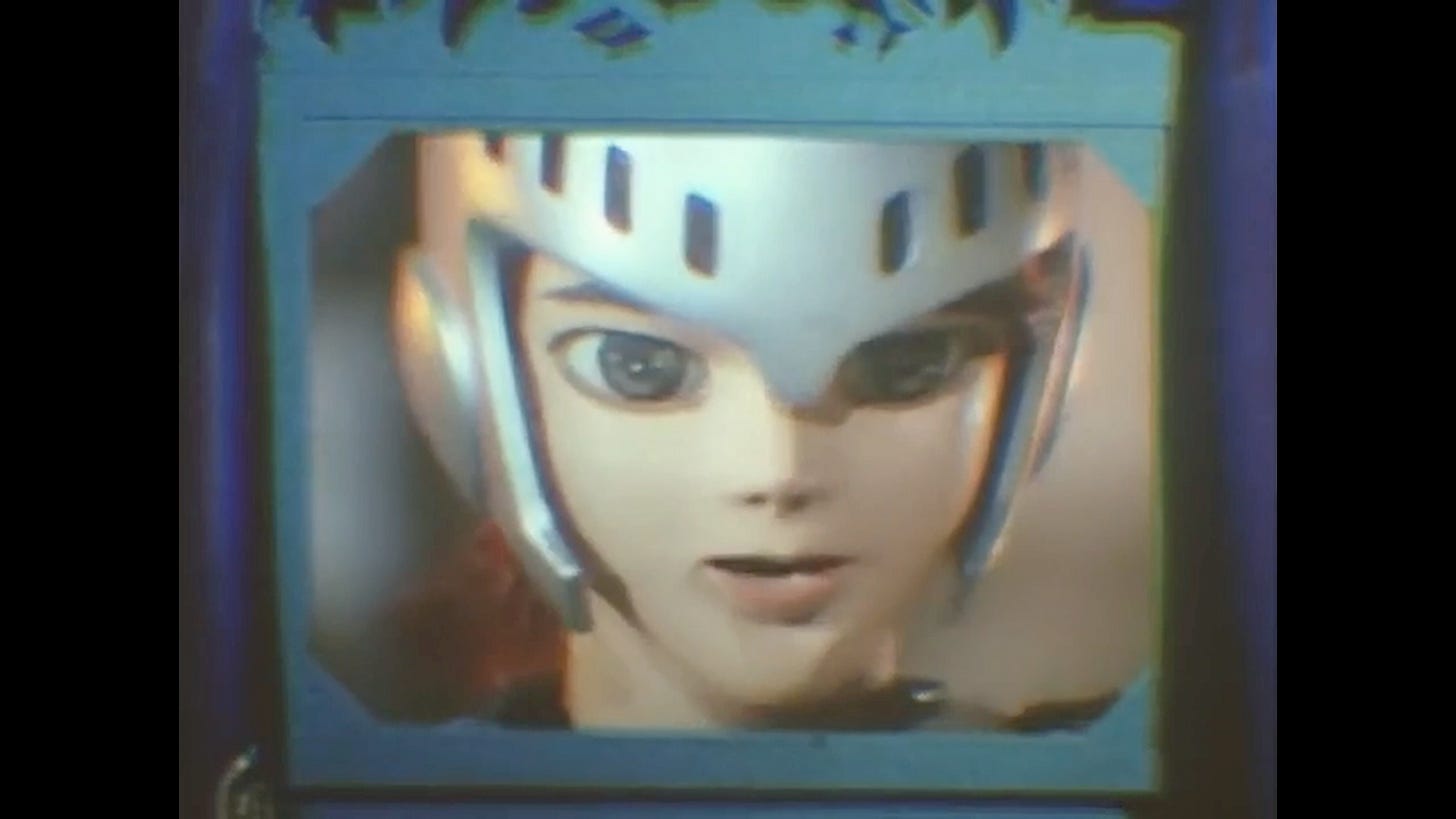


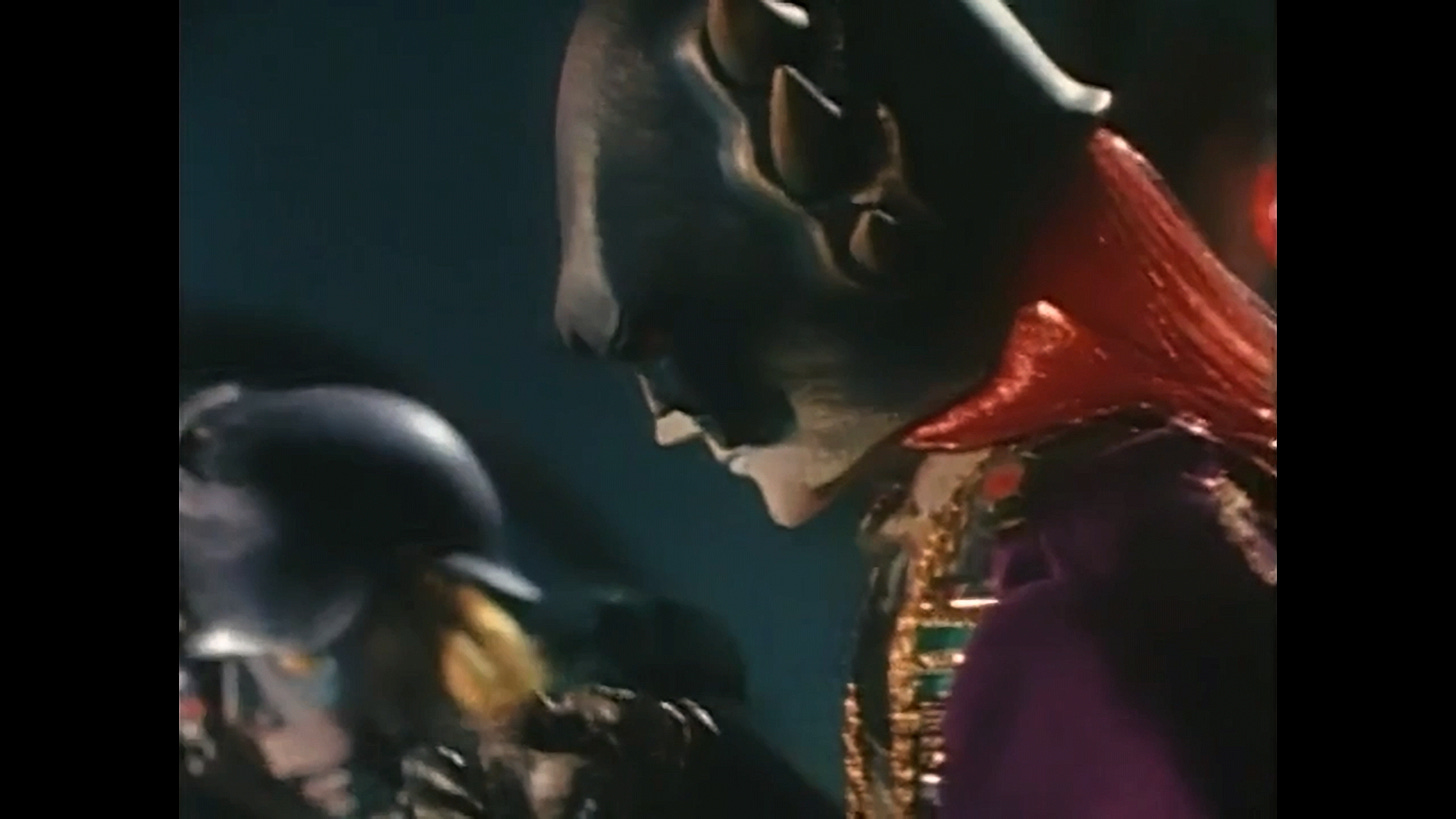


I like your idea of researching more about the Japanese version.
I like the idea that you investigate the Japanese version.